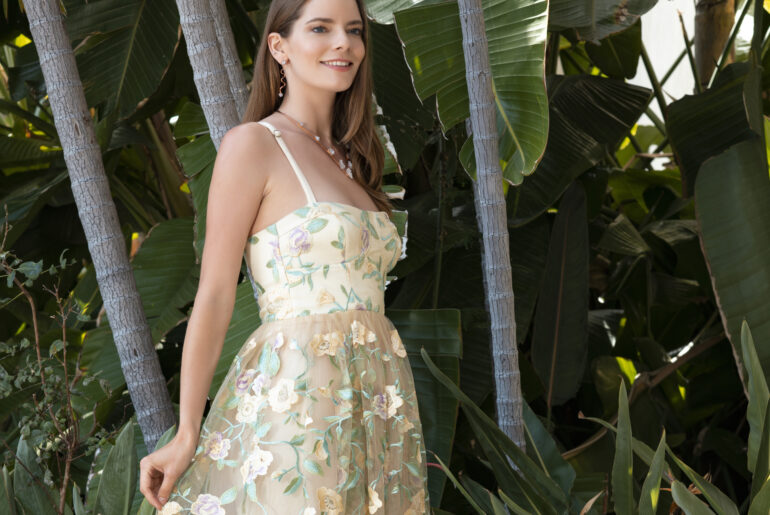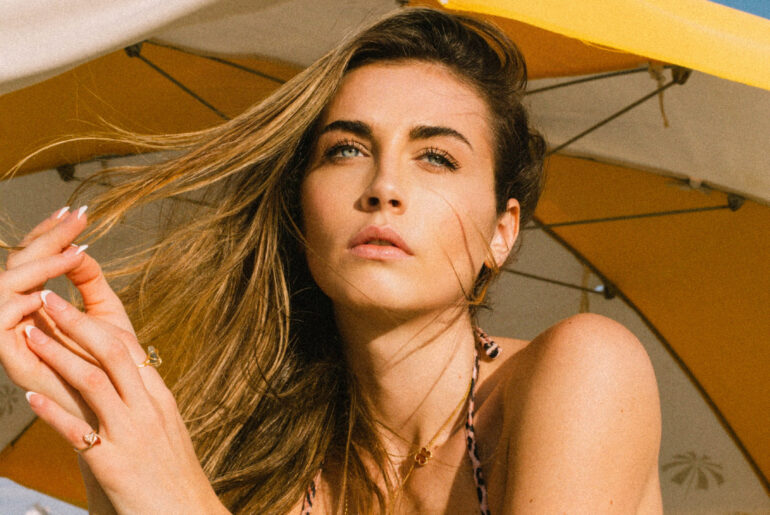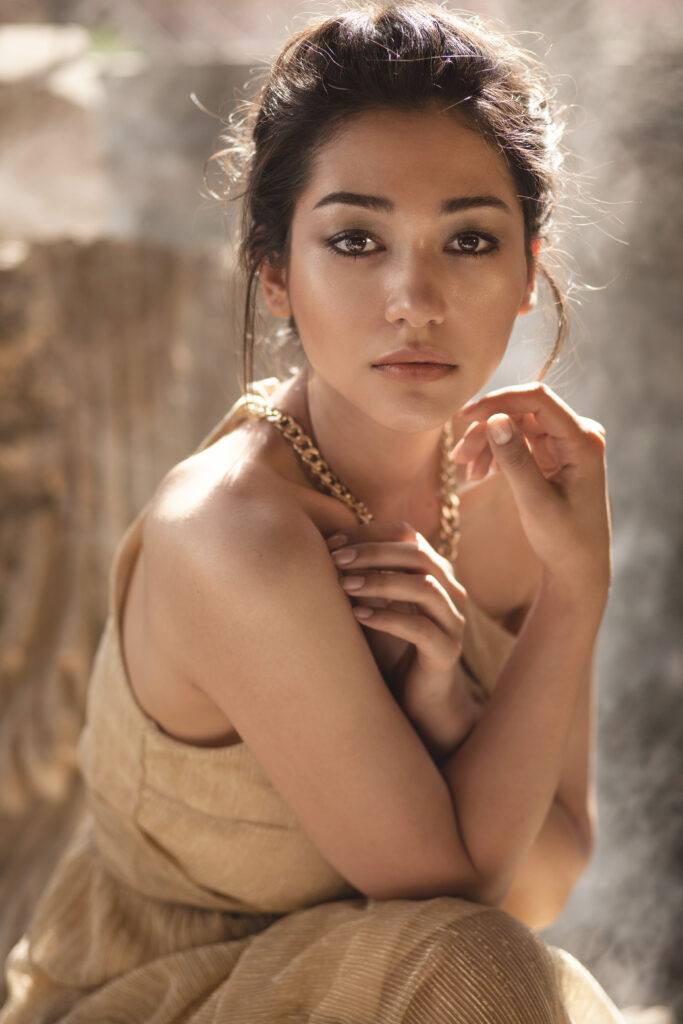
What is the road that led you to become a journalist?
As much else in my life, journalism pulled me in quite by accident. I was interested in what was happening at the radio station while we were listening to it, how the program was being produced and broadcasted. I asked my classmate to take me to her mom’s work – she was a radio correspondent. I was lucky she agreed, and I ended up being there. I saw the mill of the program from the inside and realized I wanted to connect my profession with journalism. I have always known that information can help people to be better and improve their lives.
Tell us a little bit about your childhood, where you grew up and the memories that make you smile.
I was born and raised in the capital of Uzbekistan – Tashkent city. For sure, I really miss my homeland. Especially now, when, due to the coronavirus pandemic, it is not possible to travel and visit relatives as often as I could before.
Actually, there are a lot of warm memories. Starting from my carefree childhood when I climbed trees in my grandparents’ garden and enjoyed ripe juicy fruit and ending with studentship that I had always combined with my full-time work in media. Tashkent is a wonderful city, and I am pleased I have lived there for the first twenty years of my life. I always return there with great joy – wonderful people who create an incredibly welcoming atmosphere – live there. I often feel nostalgic and cook national dishes to be able to travel home mentally.
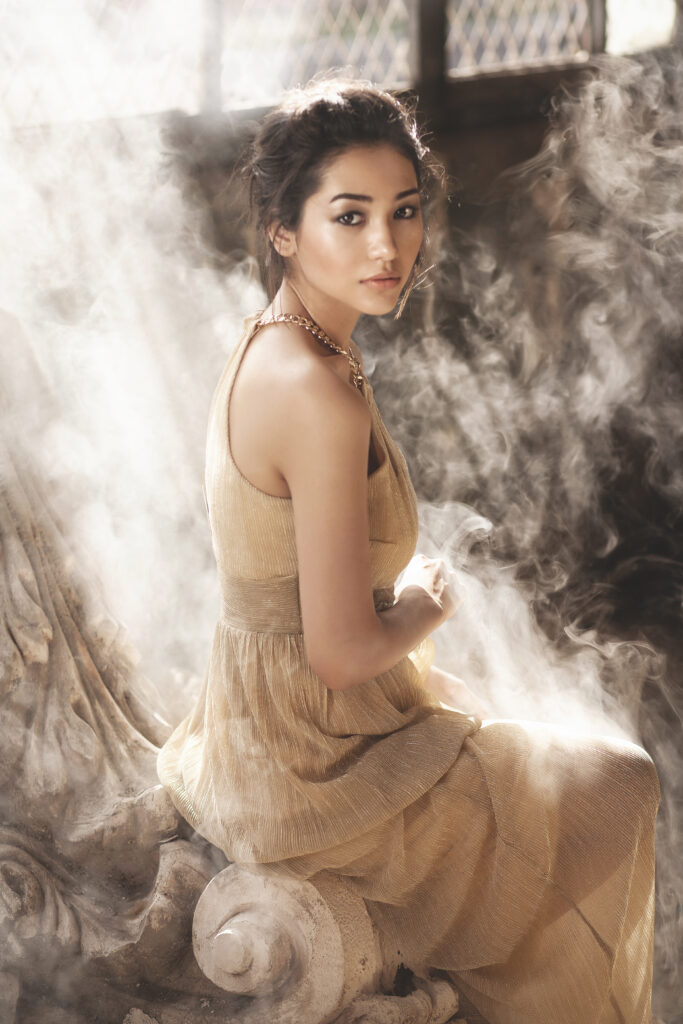
What were your interests growing up?
A lot of things, actually. In childhood, we are all inquisitive and we are interested in absolutely everything. Why? What for? How? I always tried to understand why everything worked and happened the way it did. Surprisingly, we ask so many questions as kids and become so indifferent when we grow up. It is interesting. Due to my profession and passion for exploring things happening around me, I can remain interested.
Tell us a bit about your parents and their influence on you.
My parents are music teachers. They are hardworking people and have instilled in me the love for work. And I am endlessly grateful to them. But in general, it is difficult to say more specifically. They just raised me and my older brothers the way they thought was right. And they tried to manage that at their best. I can only say that everything I have – genes, upbringing, education, character, manners, and determination – is thanks to them.
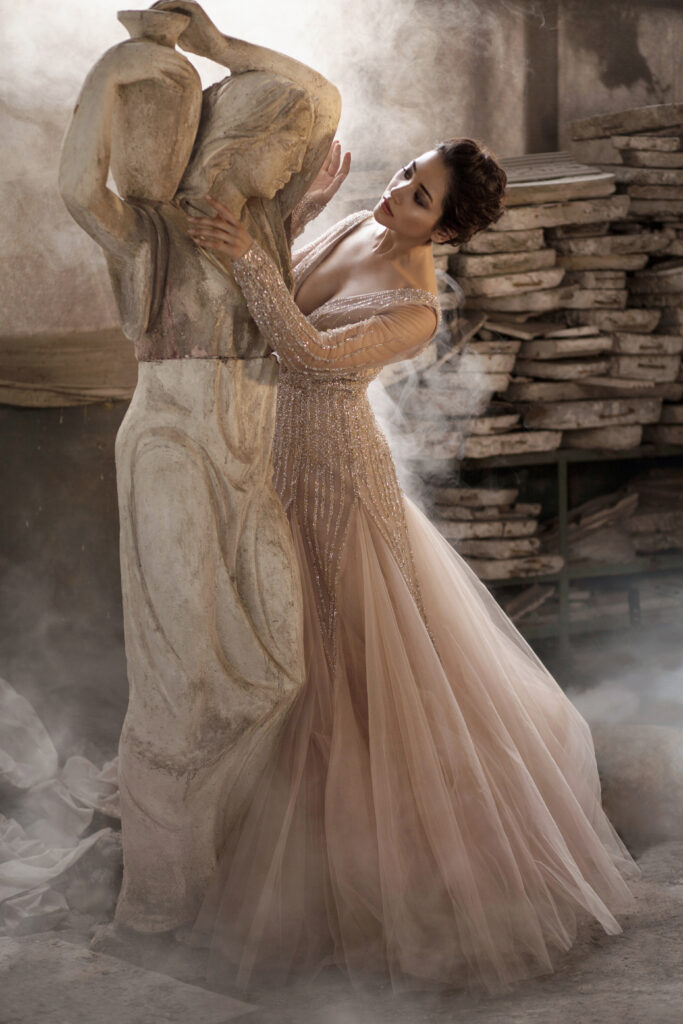
In 2014 you became the television host of the “Good morning” TV Show on Channel One Russia. How was the process and what was the road that led you there?
At that time, for me, it was a logical step in my television career. I started it in Tashkent and continued in Moscow, as I was studying at Moscow State University. I was hosting evening news broadcasts on the Interstate TV channel “MIR” when I saw an advert about casting for the position of the host in the morning show. Everything about the news was familiar and understandable and I wanted to try myself in a different television genre. I came to the casting as an experienced presenter and fitted in perfectly well in temperament, taking into account the format of the program.
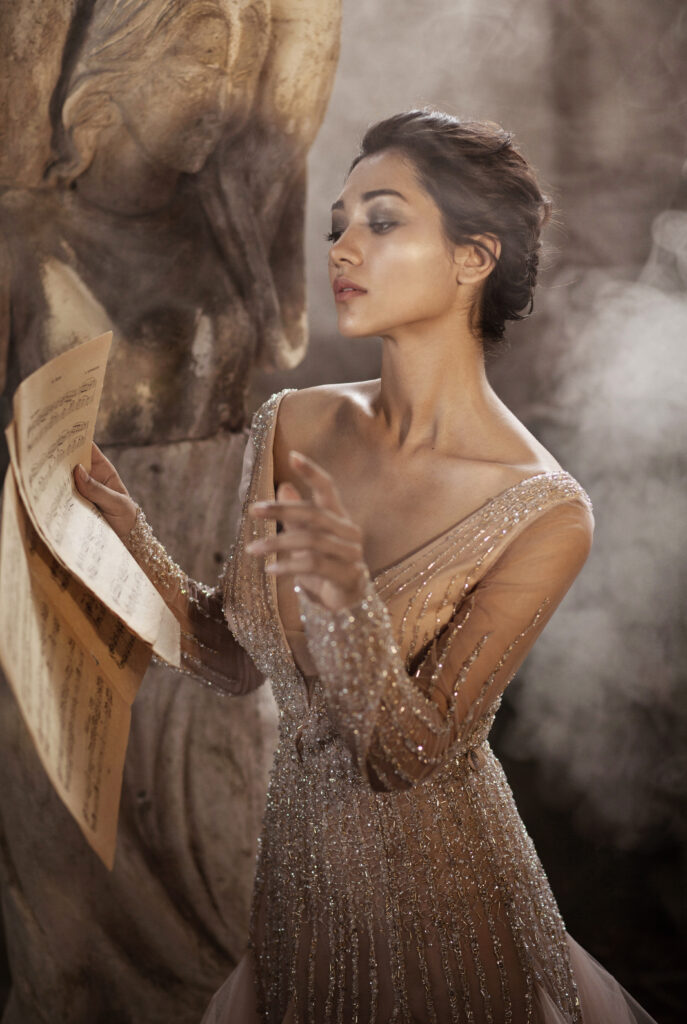
What was the most challenging thing as a television host of the “Good morning” TV Show?
Perhaps only to wake up at 3am and be in good shape throughout the four-hour on air.
What were the lessons you learned on the job?
To be able to find interesting things in everyday life. When you have been working in one program for several years and when it is not news, at some point it starts to seem that everything is repeating itself. Significant dates, celebrity guests, some situations can be repeated. And then, in order to be carried away by what you are doing, you have to look for new details and perspectives so that your eyes continue shining. After all, everything is the same in life, it is important for us to find something new in our every day and stay passionate. Otherwise, it is easy to turn into a dull pessimist.
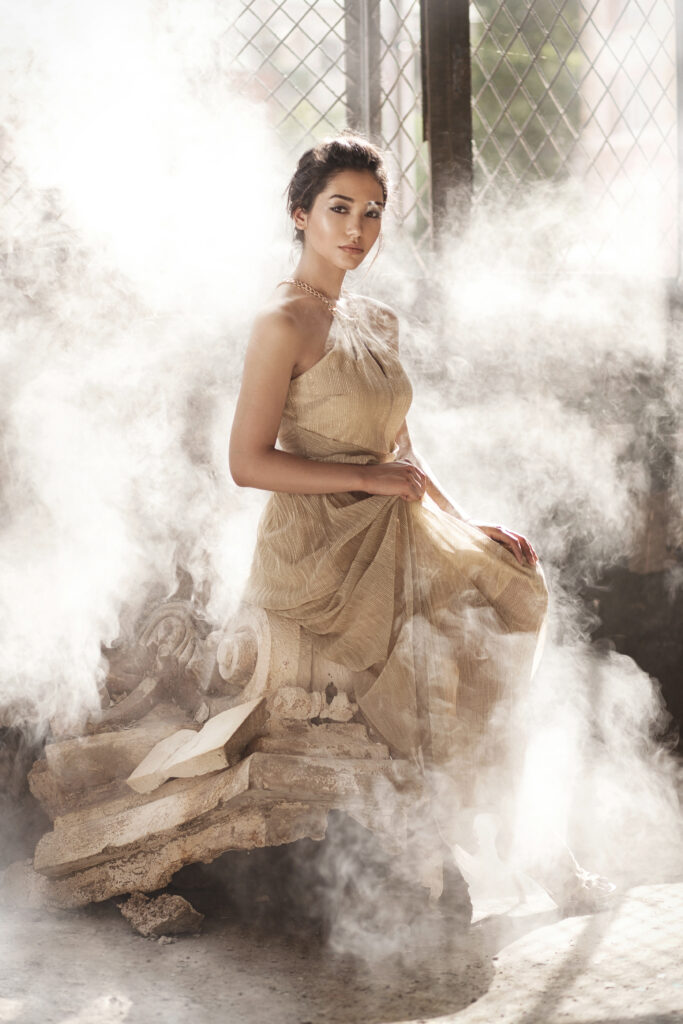
After 5 years you have left the morning show. Why?
This is precisely because it became difficult for me to find an opportunity for myself to be captured by the working process. In the West this is called “emotional burnout” and this syndrome is well-known to everyone – this is the main problem of big cities; it concerns large corporations and their employees. But in the post-Soviet space, they are just beginning to talk about it. Having studied this syndrome, I realized it was burnout. I could no longer continue doing what had made me happy at work a few years ago. Nobody could understand that then and is unlikely to understand now, since no one can feel what I experienced at that time.
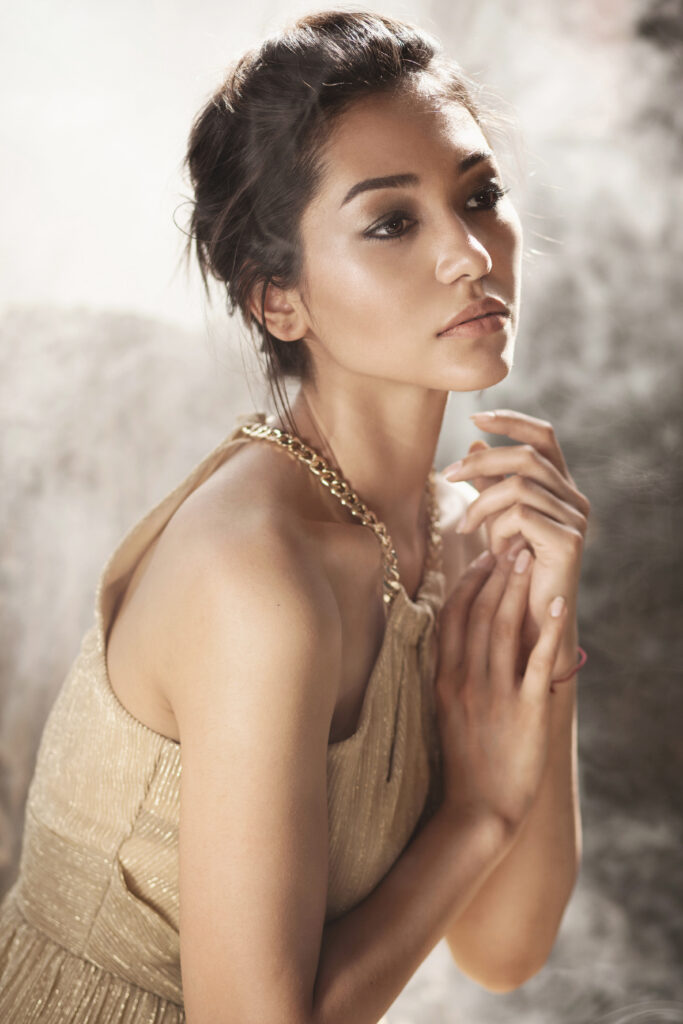
What are you working on now?
After leaving Channel One Russia, I moved to the Netherlands to living with my fiancé, with whom we have been together for many years. We are also planning a wedding, but it is unclear now when and how we will get married. Everything has changed so much over the past year due to the pandemic; it has made adjustments to the plans of absolutely everyone on the planet.
I am working on my Ph.D. thesis about the professional techniques and creative practices of a television presenter. I continue researching this topic. Recently I have submitted a scientific article where I explored the transformation of television content during a pandemic using the example of the popular American television show “Live with Kelly and Ryan”. They have been working from home for a long time and this has led to significant changes in the content of the program. I have always enjoyed not only being a TV practitioner but being a media researcher as well.
Career-wise, now I am teaching and helping people to learn communication and public speaking skills. I have written a book about this and preparing it for publication.
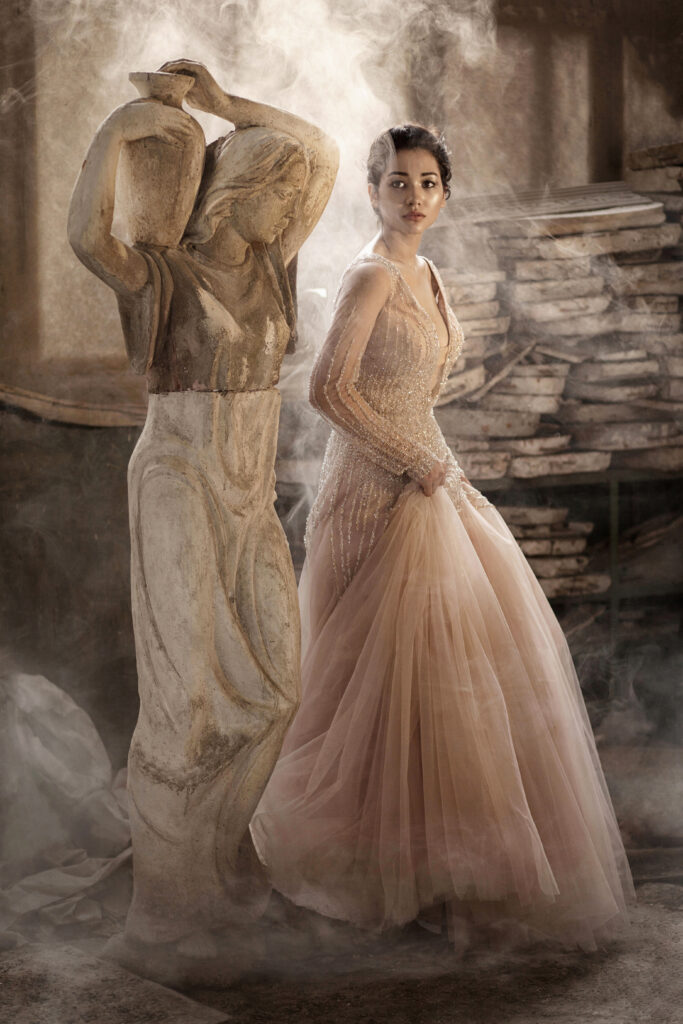
Where do you find your inspiration from?
Inspiration can be found in many ways. Moreover, both around and within yourself. I can be inspired by good weather – I see that it is going to be sunny and I decide to go for a run. While running, I see people, their interactions and this can also inspire me, for example, for writing a short story. We have to be more attentive to the details.
But in no case should you sit and wait for inspiration to fall on your head. And if it does fall, it will make someone angry and the other one inspired for scientific discovery. That is why I say everything inspires me. And in case if nothing does, I just sit down to do what I want to do or what I should do, and, gradually, the inspiration catches up with me. Try it, it really works! This was the case with my Ph.D. thesis. I realized that if there was no inspiration, then the only person to blame is yourself. After all, street artists find inspiration somehow in the most inconspicuous places. Someone manages to create a piece of clothing or an Art object even from the garbage.
What is your work mantra?
Just conscious breathing. Sometimes it can mean more than words.
What makes you happy?
Different things. Sometimes I am happy to have a chance to be in no hurry, no rush – this is both the simplest and the most difficult thing that we can afford. Sometimes I am happy to have a new occupation, new tasks – I cannot stand the monotony, as it turned out, I cannot stay in one place. I need movement and constant development.
Honestly, there is something that can always make me happy – it is delicious food. Again, thanks to my homeland for the rich national cuisine, including homemade dishes. The Uzbek culture, part of which is the cuisine, taught me to turn every meal into a special event.
What’s next for Dilbar Fayzieva?
As you can see, I am still open to new things. We will see.


